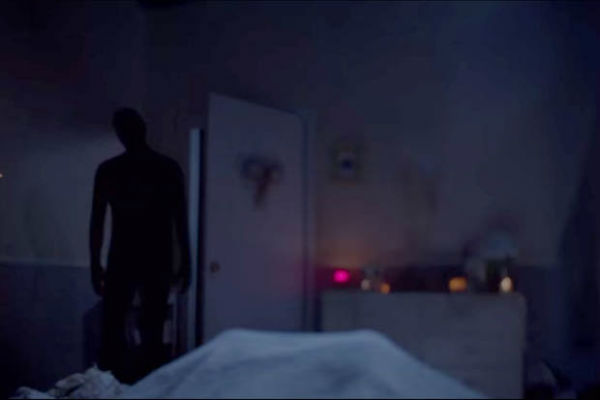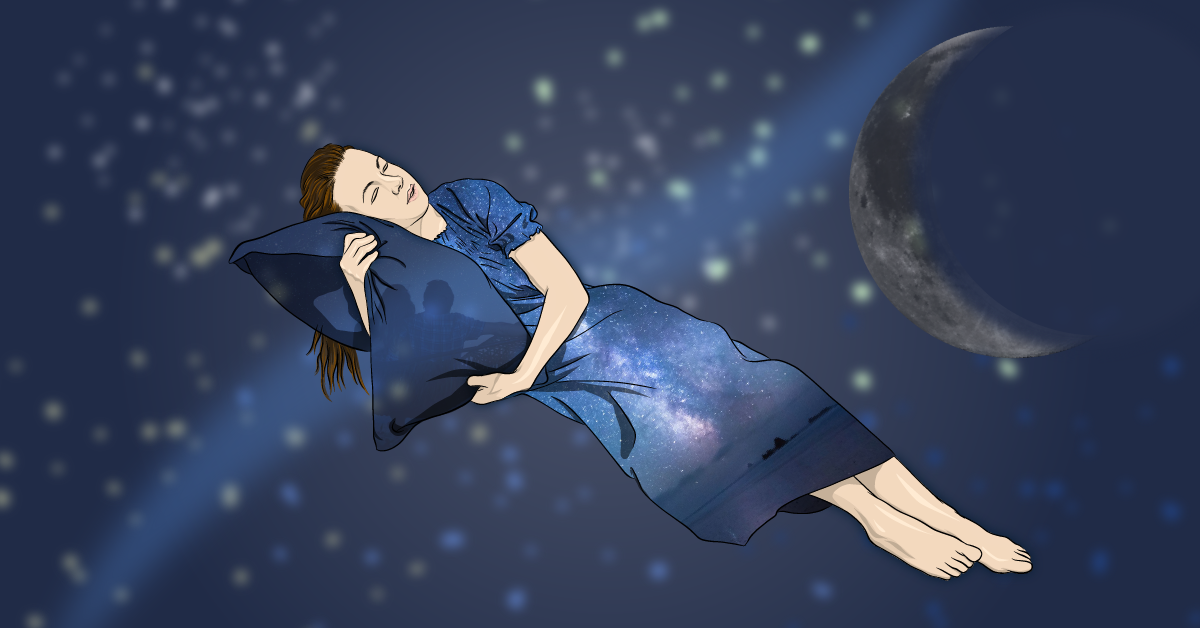Dreams are the strangest part of our everyday lives: everyone has them, we often can't explain them, and researchers still struggle to understand them.
But what we do know about dreams is quite surprising. Here are 15 facts about your dreams - and your nightmares:
1. Why do we forget them so quickly?
It's still not clear, but one theory is that your brain doesn't want to confuse your dreams with real memories.
Dreams happen during Rapid Eye Movement (REM) sleep, where your body is paralyzed so you don't hurt yourself (more on that later). The mechanics of REM sleep may also turn off the part of your brain that makes memories.
That may explain why dreams seem vivid when we wake up, but are completely forgotten in just 10 minutes. That short window is the space when your mind is shifting from REM sleep to full wakefulness.
Also: our brains just have a hard time remembering things that happen once, and our dreams are often unique and very short.
2. Everyone dreams (probably)
To this day there are people who insist that they rarely or never have dreams, but researchers say they're probably wrong.
While 32% of people report dreaming less than once a month, scientists have recorded these "non-dreamers" while they sleep and have proved them wrong.
Most of them were seen acting out dreams, or had dream-like brain patterns recorded. Of course, they simply forget their dreams when they woke up and claimed they didn't have any.
3. Sweet dreams vs. nightmares
Regardless of how often you dream, sweet dreams tend to be more common than nightmares. People who get a good night's rest usually dream more and have a higher percentage of good dreams.
In a 2004 survey, 65% of people who sleep well said they usually have happy dreams, compared to just 57% of people who say they could use more sleep.
4. Sleep paralysis
This rare but frightening condition happens when the REM sleep that causes our dreams goes haywire.
REM normally occurs in the middle of the night when you're fully asleep, but some people experience it as they wake up.

As if waking up paralyzed wasn't scary enough, many people who suffer from sleep paralysis report seeing shadowy figures and other nightmarish sights when they wake up.
This could be because the amygdala, which registers the "fight or flight" response in your brain, is more reactive during sleep paralysis episodes.
5. Precognitive dreams
Many people report dreaming about important events before they happen. Some call this déjí vu, but it's also known as a precognitive dream.
Throughout history, people have shared claims that they dreamed about disasters like 9/11 or the sinking of the Titanic before they happened.

But experts chalk these claims up to coincidences, or our faulty memories drawing connections that don't exist.
When famous pilot Charles Lindbergh's son was kidnapped, a pair of psychologists asked the public to mail in any dreams they had about the boy's whereabouts.

Of the 1,300 letters they received, only a dozen correctly guessed that the boy was dead, and just 4 could accurately describe that he was buried among some trees.
Take that as either dumb luck or a sign of some paranormal insight.
6. Lucid dreaming
Some people describe dreams that are almost like a video game: instead of feeling helpless, the dreamer can control what they do, where they go and even who they see.
So-called "lucid dreamers" have even provided advice for the rest of us on how to achieve these fun, playful dreams.
They recommend keeping a dream journal, to recognize what you normally dream about. Also, repeat "I am aware that I am dreaming" as you go to bed.
It also helps to wake up without an alarm, so your dreams won't be interrupted. Waking up in the middle of the night before going back to bed can also trigger lucid dreams.
7. Dreamcatchers
There's a rumor that these decorations are a modern invention, but that's not true. Many Native American tribes used them, usually by hanging them over a baby's cradle.
They were called asabikeshiinh or "spiderweb" by the Ojibwe.
The legends say that the Spider Woman was a protector of children, who would save them from bad dreams.
To protect their grandchildren, grandmothers would weave Dreamcatchers for the Spider Woman to rest on, and to trap bad dreams or spirits.
8. Common nightmares
We may think we're unique, but many people report experiencing the same handful of nightmares.
Dream analysts and psychologists believe that's because the fears these nightmares represent are so common. For example: falling could mean there's a major problem lurking in your life.
If your teeth fall out, you may feel that you're losing power, or confidence in yourself. Finding yourself naked in public might represent vulnerability, say if you've just started a new job.
Finally, taking a test or exam probably means you're stressed out by the demands of your job.
9. How to remember your dreams
If you're the type of person who remembers they had a dream, but can't say what happened in it, experts have tips to sharpen your memory. They recommend starting a dream journal, so you can track and recognize trends in your dreams.
Also, waking up without an alarm can help you dream longer, so your memories will be more vivid.
10. Blind people do dream
Despite what you may have been told, blind people dream, and often about the same things people with sight do (conversations, memories, people they know). They just experience dreams with their other senses - touch, smell, taste and hearing.
Although, blind people who were born with sight sometimes see in their dreams.
Blind people do tend to have more nightmares, probably because they're usually light and fitful sleepers.
They also reported having nightmares about very typical fears for the blind, like losing a guide dog or being hit by a car.
11. Some dream in black and white
This may be hard to believe, but a survey from the 1940s found that people rarely dreamed in color. These days only about 12% of people say they ever dream in black and white, and that number keeps shrinking all the time.
Researchers say the reason for this is the movies and TV shows we watch, which are hardly ever in black and white now.
12. Animals can dream too
This should be no surprise to dog owners, since you've probably caught your dog moving their legs and whining in their sleep. The usual explanation is that they're "chasing rabbits," but biologist say it's more likely they're thinking about you.
Like us, dogs probably dream about everyday activities and the people they know.
Dog brains are actually very similar to human brains when it comes to sleep.
The brain patterns of sleeping humans and dogs are almost identical, and dogs can suffer from sleep conditions like insomnia and narcolepsy.
13. How to wake up from a dream
If you're caught in a nightmare and trying to wake yourself up, the classic advice is to pinch yourself. Feeling that the pinch doesn't hurt is meant to remind you that you're dreaming.
If that doesn't do the trick experts say to try reading, or looking at a clock. For some reason, most people report that they can't read words or numbers while they're dreaming, and trying to do so wakes them up automatically.
14. Men and women dream differently
Yes, even when it comes to dreams men and women just can't see eye to eye.
There's no telling whether nature or nurture is to blame, but the dreams that most men describe are very different from the most common female dreams.
Men report dreaming of violence, cars and sex more often, while women says they think of relationships, family and emotions in their dreams.
Women also notice color and conversations in their dreams more than men, and dream about work less - although work dreams have become more common for women through the decades.
15. You can't snore while you dream
Well, that's one good thing about snoring: you can't have a nightmare while you're doing it!
Dreams tend to last about five to 20 minutes, which means you usually have more than one each night. Here's hoping all your dreams are sweet tonight!
Share this list with someone you know!












